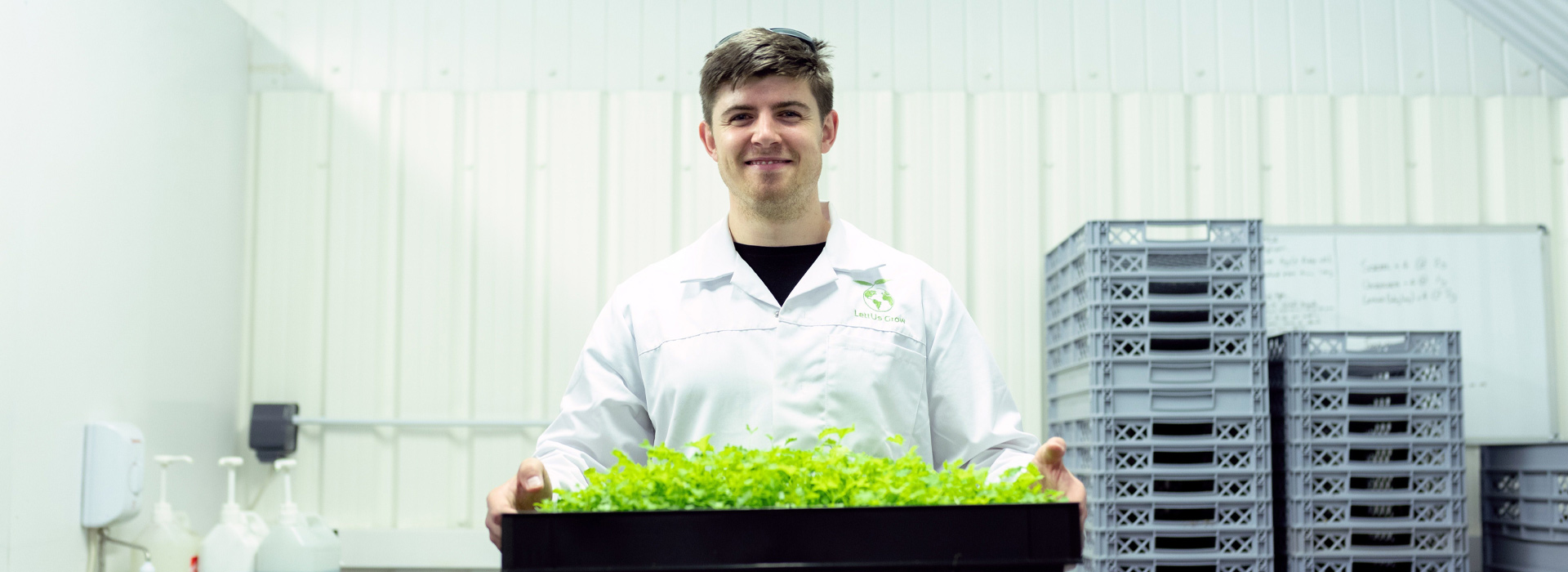
What we achieved by pushing knowledge exchange in sustainable technologies
In 2019, the Centre for Sustainable and Circular Technologies (CSCT) and its business hub, the Sustainable Technologies Business Acceleration Hub (STBAH), were granted £150,000 by the University of Bath to support pump-priming projects in sustainable technologies.
The funds, originally granted to the University under the EPSRC Impact Acceleration Account award, were to be used by 2020 to promote knowledge exchange. CSCT and STBAH used the funds to:
(1) support the work of a post-doctoral researcher on joint research with industry, and
(2) identify and implement joint proof-of-concept projects between Bath academics and businesses or industry-focused research centres.
Between 2019 and 2020, the CSCT and STBAH were able to successfully support nine sustainable technology projects spanning different fields in science and engineering:
- Self-healing plaster as novel construction material
Dr Susanne Gebhard, Department of Biology & Biochemistry, and Professor Kevin Paine, Department of Architecture & Civil Engineering, used IAA funding to work with local SME Adaptavate, who develop bio-composite construction materials and processes including innovative plaster and plasterboards. The project focussed on the development of a self-healing plaster using the technology developed at the University of Bath.
- A fresh look at data collection for indoor farming
Bristol-based SME LettUs Grow provides hardware and software solutions to indoor farmers to maximise their yield and reduce their waste. Dr Özgür Simsek, Department of Computer Science, dedicated IAA funds to work with the company on optimising both the nature and the format of the data collected by their sensor arrays.
- Understanding barrier properties to develop tree-free packaging for food and personal care products
Centre for Sustainable and Circular Technologies (CSCT) academics Professor Matthew Davidson, CSCT Co-Director, and Professor Janet Scott, CDT Training Director, used IAA funds to work with envoPAP, a company that develops and produces tree-free paper products such as printer paper and paperboard. In order to diversify envoPAP’s range to include packaging for food and personal care products, this project focussed on understanding the barrier properties of existing polymers, particulate and composite films and coatings. This helped the company reach their goals and led to increased impact from the research conducted at Bath.
- Knowledge exchange to advance cellular agriculture
Dr Marianne Ellis, Department of Chemical Engineering, was able to facilitate knowledge exchange from the University to Cell Ag Ltd, a local SME, with IAA funding. The project focussed on developing the proof of concept work needed to advance the technology and produce large volumes of cells. The company and the University are currently co-applying for funding for further development of the concept.
- Increasing the value of supply chain data collection
Ecodesk is a local SME that has a digital platform for collecting and analysing supply chain environmental, social and governance (ESG) data. IAA funding allowed Dr Sophie Parsons, Department of Mechanical Engineering, to increase the impact of her research by helping the Ecodesk to better understand how to obtain more value out of the data collected from companies in the supply chain.
- Helping local businesses assess process circularity
Woolly Shepherd is a local SME that develops, manufactures and installs acoustic treatment primarily using renewable wool-based products. Professor Marcelle McManus, Centre of Sustainable and Circular Technologies (CSCT) Co-Director, collaborated with the company to conduct a life-cycle assessment of the production of the wool-based sound insulation product, from the point of wool processing to installation. This IAA-funded project benefited both the company and the University, by providing a route for Bath’s research to have greater impact. Woolly Shepherd has expressed an interest to continue collaborating with the University of Bath.
- Building new strategic international relationships
Professor Chris Chuck, Department of Chemical Engineering, invested IAA funding to organise a joint seminar with key scientists from Los Alamos National Laboratory (LANL), USA, and the US Department of Energy. The two-day meeting allowed the CSCT to showcase its achievements, and provided visitors with a platform to discuss the DoE’s roadmap for successful sustainable technology. Importantly, the symposium resulted in a number of initiatives that will further strengthen the collaboration between the entities, including visiting research fellows, internship opportunities for students, joint funding applications and co-organisation of upcoming events.
- Synthesis and characterisation of fibre-reinforced polymer composite materials
The National Composites Centre (NCC) is a catapult that works at the interface of academic research and industry. The IAA-funded project between the NCC and Professor Matthew Davidson, Centre of Sustainable and Circular Technologies (CSCT) Co-Director, focussed on the synthesis and characterization of fibre-reinforced polymer composite materials. These materials are lightweight, strong and durable, offering a wide range of applications in various capacities, including transport, construction and renewable energy.
- Measuring the barrier properties of graphene-embedded polymers
Anaphite is an SME that produces graphene and incorporates it into composite materials in a much more affordable way than their competitors, which facilitates the scalable deployment of materials in applications such as lithium-ion batteries, air purification, thermal interface materials and polymers. Dr Bernardo Castro-Dominguez worked with this company in an IAA-funded project focussed on developing the methodology required to measure the properties of polymers embedded with Anaphite’s graphene product, especially to study barrier properties. The project has led to further collaborative work with the company, plus consultancy work testing barrier properties of polymers.




